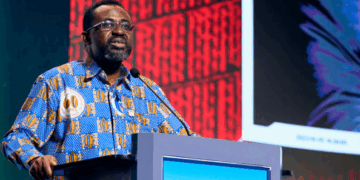Adam Mosseri, CEO of Meta-owned Instagram, testified that the company faced a reality check when TikTok gained popularity.
In 2018, when Mosseri took over as CEO, Instagram was experiencing drops in user engagement, partly due to competition from TikTok. By 2019, Instagram estimated that 23% of the decline in time spent on the app in the US was due to TikTok. Mosseri wrote to his team in March 2020, stating, “We can’t explain it all, but what’s clear at this point is that we need to adapt, and do so quickly.” He testified Thursday in a DC courtroom that Instagram needed to recover because “you’re either growing, or you’re slowly dying.”
Mosseri’s testimony came during the Federal Trade Commission’s antitrust trial against Meta, where the government alleges the company illegally monopolized the market for personal social networking services, including Snapchat but not entertainment-focused apps like YouTube or TikTok. Mosseri highlighted Instagram’s competition with TikTok, but also emphasized that connecting with friends remains a central part of its service.
Since his March 2020 warning, Instagram has seen more success, partly due to improved AI recommendations for Reels. However, TikTok remains “the fiercest competition that we have faced.” As Instagram has sought to compete more effectively with TikTok in building out Reels, TikTok has become more similar to Instagram, Mosseri testified. While he used to consider TikTok a more of “lean-back experiences,” he now sees it as “every bit as participatory as we are at this point.” TikTok is actively trying to engage users’ connections with their friends, he testified, noting it’s rolled out a feed to watch friends’ videos. (A TikTok executive testified earlier in the trial that only 1% of videos watched on the platform are through that tab.)
ICYMT: Mahama commissions Deloitte to audit National Cathedral project, targets broader accountability
Meta has emphasized throughout the trial that connecting with friends and family has become a smaller part of its business due to competitive pressures. However, Mosseri’s testimony highlighted that engaging with friends is still a core use case for Instagram, differentiating it from rivals. Mosseri said in a 2024 video that the app wouldn’t expand into long-form video because it wasn’t as conducive to sharing with friends. “I still think friends are an important part of the experience,” he testified, though he also shared that as the app has grown overall, “the percentage of the app spent on friend content has gone down.”
“Instagram will always need to focus on friends,” Zuckerberg wrote in a 2018 email to Mosseri. Even as it grows to include more entertainment, he added, it “can never exclusively be for public figures or it will cease to be a social product.”
Mosseri also bridged the gap between earlier testimony from Zuckerberg, who testified about how Facebook helped Instagram grow, and Instagram co-founder and former CEO Kevin Systrom, who testified that Zuckerberg eventually pulled back resources from Instagram in favor of Facebook. Mosseri, who took over as CEO when Systrom left in 2018, gave a third perspective on whether Meta helped grow Instagram or bought it to squash a competitor and later deprive it of resources.
Mosseri observed that Instagram had “drifted culturally a bit too far apart in my opinion. We used to refer to Instagram as its own company, and it’s not.” He could see why Instagram’s founders were upset with some of the changes Facebook made to reduce promotion of Instagram from Facebook, but he saw both sides. “I disagreed with some of the changes personally, but I also thought they were being made more of than they needed to be.”
Ultimately, Mosseri testified, Facebook’s decision to buy Instagram could go down as “one of the best acquisitions of all time.” Instagram got to access Facebook’s resources and experience, and Facebook got to access the Instagram founders’ unique talent for coming up with innovative products – something Meta would need to stay ahead of competition in years to come. Both companies, he said, “benefited greatly.”
SOURCE: THE VERGE



























